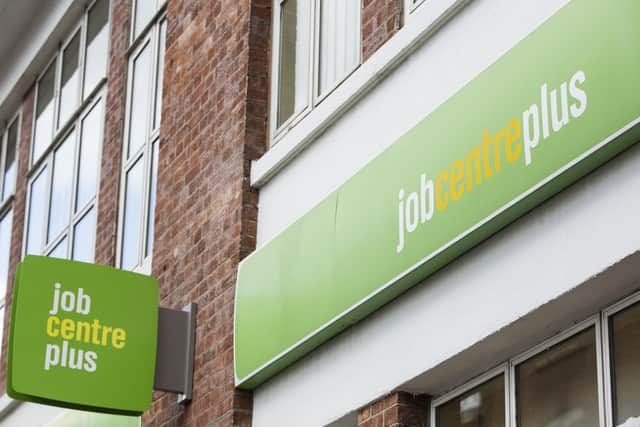Thousands of Wiganers needing benefits in lockdown still claiming six months later
and live on Freeview channel 276
In a further underlining of the effect Covid-19 has had on the system the statistics also showed the number of in-work claimants also grew in Wigan by six percentage points between February and October 2020.
Experts said furloughed workers, those in low-paid jobs and on zero-hours contracts required top-up payments, while the Government has said it is boosting welfare support by “billions” of pounds to help.
Advertisement
Hide AdAdvertisement
Hide AdWigan Council said the pandemic has been “very challenging” and outlined the work it has been doing to assist residents in need.


The BBC Shared Data Unit’s analysis of Department for Work and Pensions (DWP) figures show that since the start of 2019 around one in three Wigan UC claimants have been in work.
This then went up during Covid-19, from 33 per cent when the novel coronavirus first hit Britain to 39 per cent last October, although provisional statistics suggest there may have been a slight fall in November.
The figures also show clearly how many Wiganers needed benefits as the economy contracted due to measures put in place to slow the spread of Covid-19.
Advertisement
Hide AdAdvertisement
Hide AdThere were 7,266 new starters on UC in Wigan in April 2020, with a further 4,153 signing up for the first time last May.


Of the April starters 57 per cent were still claiming UC in October, while 51 per cent of the May newcomers to the system were still receiving benefits in November.
To put the Covid-19 figures into context alongside a normal economic year, there were 1,123 people starting to claim UC in April 2019 and 869 starters in May 2019.
Economic experts are saying the £20 top-up to Universal Credit introduced by chancellor Rishi Sunak in April 2020, which the Government intended as a temporary measure, should remain in place.
Advertisement
Hide AdAdvertisement
Hide AdThey also called for the furlough scheme to be rolled back slowly and carefully to ensure employees are brought back into the workplace and not placed at risk of redundancy.
Wigan Council urged anyone at risk of financial hardship to get in touch and stressed that help is available.
Lesley O’Halloran, assistant director of customer services and culture, said: “The Covid-19 pandemic has been a very challenging and uncertain period for all of our residents and the council remains committed to ensuring those facing financial hardships receive the help they need, when they need it.
“We have helped support residents through a range of schemes that have assisted families with children, other vulnerable households, and individuals.
Advertisement
Hide AdAdvertisement
Hide Ad“We are also working directly with the DWP to help secure new jobs for local people, this has included positions aligned with adult social care and the test and trace sites.
“We would encourage anyone struggling to pay to contact us as soon as possible, we will do all we can to help by applying any eligible discounts or reductions, seeking to agree affordable repayment plans and maximising customers income by providing access to welfare support, welfare rights and advice where appropriate.”
A Department for Work and Pensions (DWP) spokesperson said: “Universal Credit has been a lifeline for millions affected by the pandemic and will play a vital role as we build back better to recover our record breaking jobs market.
“Claims still open after six months in 2020 cannot be compared with 2019 as claims not in payment are being left open for longer during the pandemic to ensure people are able to access support quickly should they need it.
Advertisement
Hide AdAdvertisement
Hide Ad“We are committed to supporting the lowest-paid families, which is why we’re spending hundreds of billions to safeguard jobs, boosting welfare support by billions and have introduced the £170m Covid Winter Grant Scheme to help children and families stay warm and well-fed during the coldest months.”
If you value what we do and are able to support us, a digital subscription is just £1 for your first month. Try us today by clicking here and viewing our offers